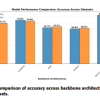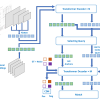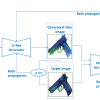Gene Selection is very important problem in the classification of serious diseases in clinical information systems. A limitation of these gene selection methods is that they may result in gene sets with some redundancy and yield an unnecessary large number of candidate genes for classification analysis. In the current work, a hybrid approach is presented in order to classify diseases, such as colon cancer, leukemia, and liver cancer, based on informative genes. This hybrid approach uses clustering (K-means) with statistical analysis (ANOVA) as a preprocessing step for gene selection and Support Vector Machines (SVM) to classify diseases related to microarray experiments. To compare the performance of the proposed methodology, two kinds of comparisons were achieved: 1) applying statistical analysis combined with clustering algorithm (K-means) as a preprocessing step and 2) comparing different classification algorithms: decision tree (ID3), naïve bayes, adaptive naïve bayes, and support vector machines. In case of combining clustering with statistical analysis, much better classification accuracy is given of 97% rather than without applying clustering in the preprocessing phase. In addition, SVM had proven better accuracy than decision trees, Naïve Bayes, and Adaptive Naïve Bayes classification.
Research Department
Research Journal
Computer Technology and Development (ICCTD), 2010 2nd International Conference on
Research Member
Research Rank
4
Research Year
2010
Research_Pages
pp.626- 631
Research Abstract







